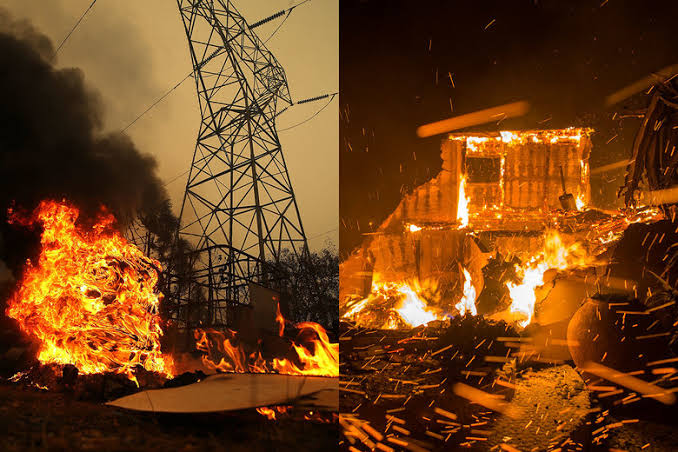The Nigerian Power Consumers Forum (NPCF) have condemned the spate of disturbances on the national electricity grid and the recent fire incidents around power transmission infrastructure.
This is coming just some days after the Transmission Company of Nigeria, TCN, stated that for over 400 days, the system has been relatively stable.
Michael A. Okoh, the Convener of NPCF, in a statement, recalled that Nigerians have seen the enormous work done by the current TCN management led by Engr. Sule Ahmed Abdulaziz. For instance, in the history of Nigeria, the TCN for the first time, took delivery of over 30 power transformers in 2022 and all were deployed to site for onward installation. The projects TCN are executing to improve access to bulk electricity covers all the six geopolitical zones too.
From independent assessment which started last year and up to this year, the Forum was able to confirm the various initiatives TCN deployed to stabilize the grid including the use of Internet of Things (IoT) and the deployment of the stop gap system as a placeholder for a smart grid system which is in the advanced stage of the procurement process for a robust deployment of a full-scale state-of-the-art Supervisory Control and Data Acquisition (SCADA)/Energy Management System (EMS).
But unfortunately, just after the pronouncement on the efforts of TCN on grid stability, the power sector has recorded at least two system collapses in succession, all caused by a fire incident in the Birnin Kebbi transmission substation and line snap along the 330kV Jebba – Kainji transmission line. These have caused nationwide outages which the NPCF believes is to bring the management of TCN into disrepute.
This Forum confirms that TCN has been maintaining its grid efficiently for 421 days and the grid is looped in some places. This rules out the lack of capacity on the part of the company. We are therefore pointing to cases of sabotage by hoodlums who may not mean well for the country.
This is not the first time critical national infrastructures have been sabotaged as cases abound everyday of oil theft rupturing pipelines or hacking power transmission towers of which over 20 of such cases were reported by TCN in the last 12 months.
The fire incident at the Birnin Kebbi transmission substation switchyard is more of a sabotage on the national grid systems. According to power engineers who have over three decades of experience, believe that technically, there is no way two power transformers separated by a reasonable distance from each other will be engulfed by fire simultaneously.
Transformers have inbuilt system protection and the probability of a transformer ignition is quite low. However, saboteurs could devise any means to disrupt the flow of electricity by pulling out transformer components. According to immediate enquiries into the incident, both the 90MVA transformer on the 330kV line and the 60MVA transformer on the 132kV line experienced a fire incident simultaneously despite being apart, separated by a reasonable space. The issue of voltage or surge was ruled out as TCN has robust protection and isolation mechanisms, instead, only internal issues within the transformer can lead to such incidents.
The internal components of the transformer consist of just two elements: the windings and the insulation materials, such as gases, oils, and SF6 gas, among others depending on the type of insulation. When pressure builds up within the transformer, it is essential to safeguard it with a Buchholz relay, positioned at the upper section of the transformer. The Buckholz relay serves as a protection against this internal pressure within the transformer. Should it malfunction, the pressure could escalate rapidly, potentially resulting in the transformer rupturing. While the investigation is ongoing, all indications refer to sabotage on both transformers as they are not linked and operate on two voltage levels and transmission lines.
Moreso, Niger Republic used to receive bulk power from a 150MVA lower transformer in the Birnin Kebbi substation, and because of the important role of this substation nationally and internationally, it is properly fitted with all protection and safety devices. The NPCF strongly notes that there may be an external force acting against the nation’s transmission system and we believe that the government of the day will strive to identify and bring the saboteurs and perpetrators of this act to book.
In the meantime, while NPCF on behalf of Nigerian electricity consumers urge TCN to continue on its trajectory of investing in the transmission networks especially in lines reconductoring, we implore them to proactively buffer other substations against further sabotage.












